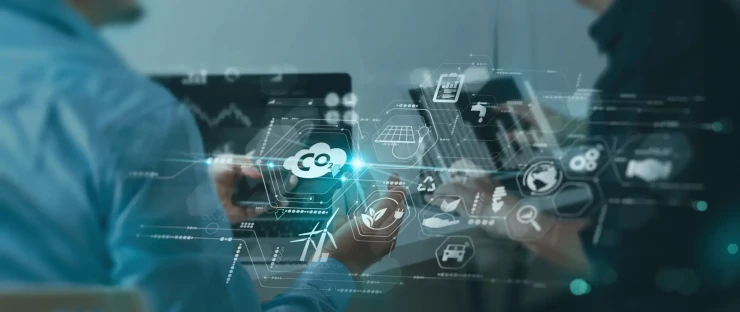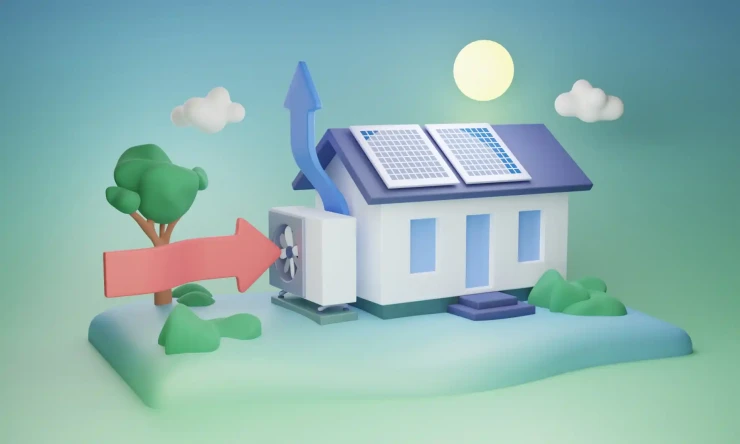The future of green transportation is shaping up in Germany, where the world’s first hydrogen-fueled trains have officially launched. The fleet of zero-emissions trains represents a crucial step forward in electric vehicle technology, particularly for large and long-range models. What does it mean for the future of transportation?
Germany’s Fleet of Hydrogen-Fueled Trains
Germany initiated service for its groundbreaking new public transit system in August 2022. The fleet of 14 trains is powered by hydrogen fuel cells, which emit zero greenhouse gas emissions, only heat and water vapour.
The project cost Germany 93 million euros and included collaboration with French manufacturer Alstom. Project leaders estimate that the fleet of hydrogen-fueled trains will save 1.6 million litres of diesel annually, equivalent to an emissions reduction of over 4.2 million kilograms of CO2.
Linde Gas & Equipment provided the refuelling infrastructure for the project, which is the world’s first hydrogen refuelling system for passenger trains. Expanding hydrogen refuelling infrastructure is critical to the success and continued growth of clean hydrogen-powered public transportation, including trains, cars, and buses.
Germany is leading the charge in what many consider the future of clean transportation technology. Hydrogen fuel is emissions-free, uses 29% less energy than diesel and requires 10% less maintenance. It’s ideal for long-range rail lines, like those in Germany’s new project. Battery-powered trains are only feasible over short distances due to the technical and financial limitations of battery power on this scale.
The Potential of Hydrogen Fuel in Transportation
Hydrogen fuel cells could be the key to completely electrifying transportation. Electric vehicle adoption has become a top priority worldwide recently. The market has a CAGR of 17.02%, with a projected value of $858 billion by 2027.
Battery-electric vehicles are the most common today, particularly for consumer passenger cars. Batteries may be fine for the average sedan or SUV but scaling this technology for larger vehicles presents major challenges. Bigger batteries are needed, which drives up the weight and cost. They also require more cobalt, which draws on an environmentally and socially harmful supply chain.
Hydrogen fuel cells provide a perfect alternative to lithium-ion batteries. The technology is much easier to scale for large vehicles, like trains or tractor-trailers. Hydrogen-powered cars may need braking and auxiliary batteries but don’t require massive lithium-ion battery packs. Plus, fuel cells don’t run down over time like batteries. They get refuelled with liquid hydrogen, similarly to conventional fossil fuel-powered vehicles.
The refuelling system gives hydrogen fuel cells a big advantage in transportation. Even consumer EVs often need all night to charge from zero to full. Charging times can become prohibitively long for large vehicles, creating logistical problems.
Refuelling hydrogen fuel cells is much more efficient, especially for large vehicles like trains. The convenience of refuelling a hydrogen fuel cell compared to charging a battery could potentially boost consumer adoption of EVs. Charging time is one of the top reasons consumers hesitate about buying an EV.
Hydrogen fuel cells are easy to refuel and perform on par with conventional gasoline-powered vehicles. Fuel cell-powered vehicles can travel an average of 400 miles per tank of hydrogen, which matches the average distance per tank of gas for a typical car. That’s 200 miles more than the average battery electric vehicle can travel per charge. Further development could make this option more energy efficient than fossil fuels.
Hydrogen Fuel Cells: The Future of Green Transportation
Hydrogen fuel cells fill a critical gap in EV development, allowing for the electrification of trains, buses, trucks, construction equipment, and other large and long-range vehicles. Germany’s groundbreaking hydrogen-fueled trains represent a vital step forward in developing and expanding hydrogen transportation. This innovative fleet of green trains could define the future of public transit.
By Jane Marsh





























